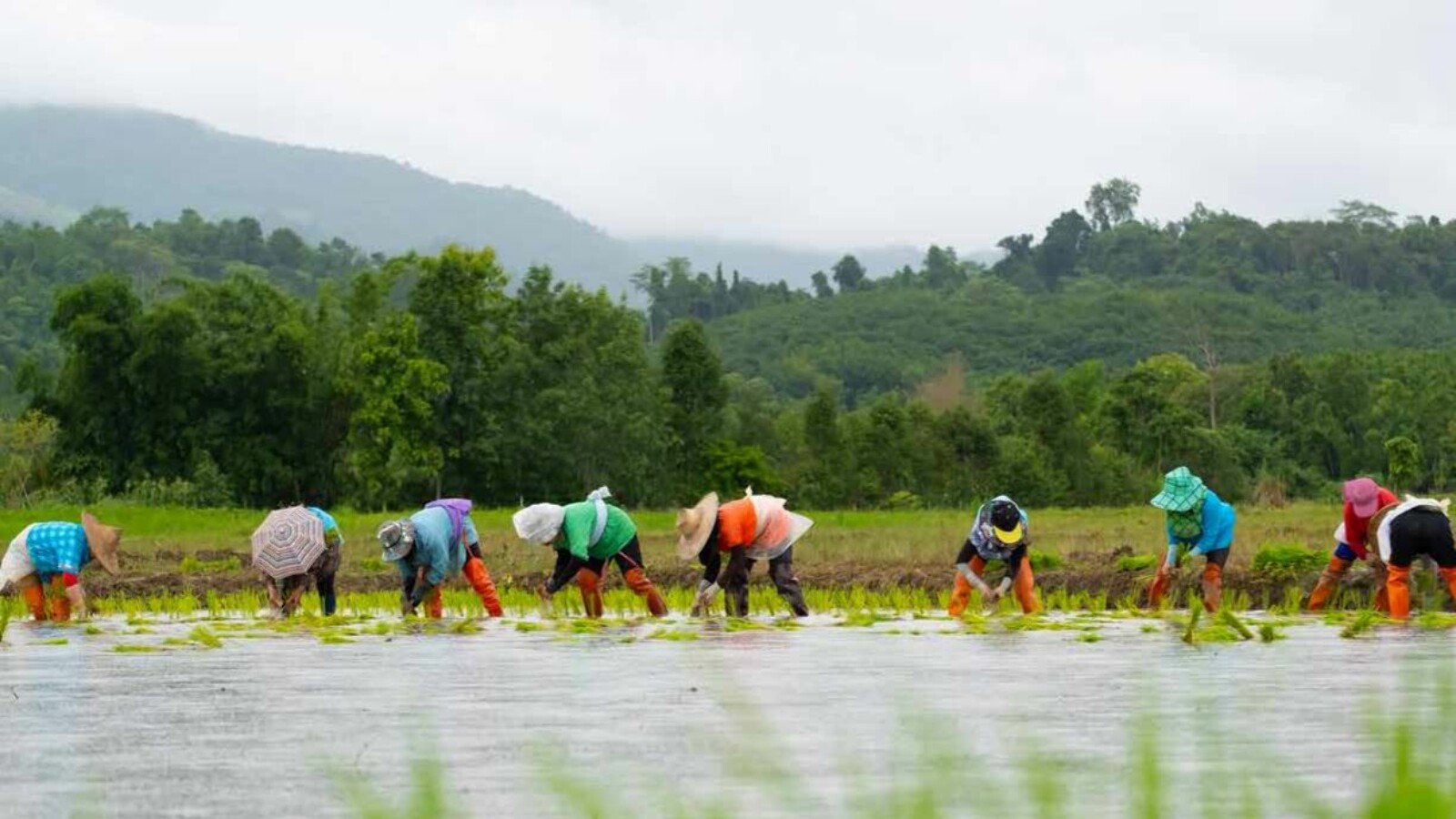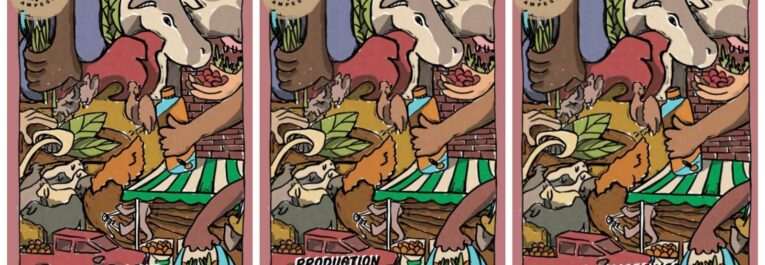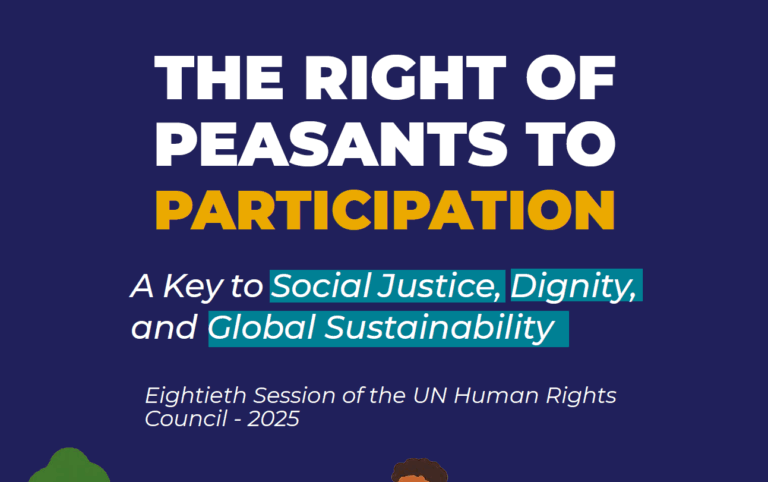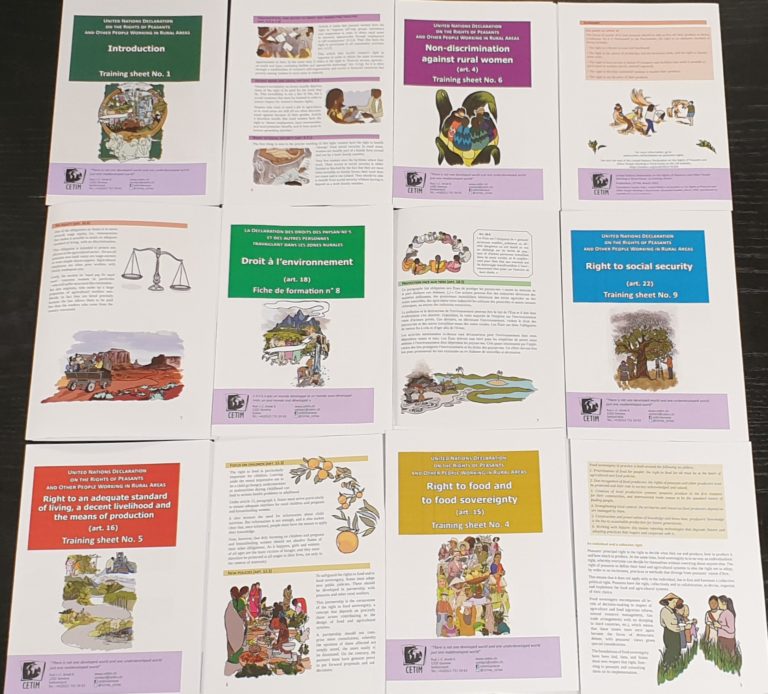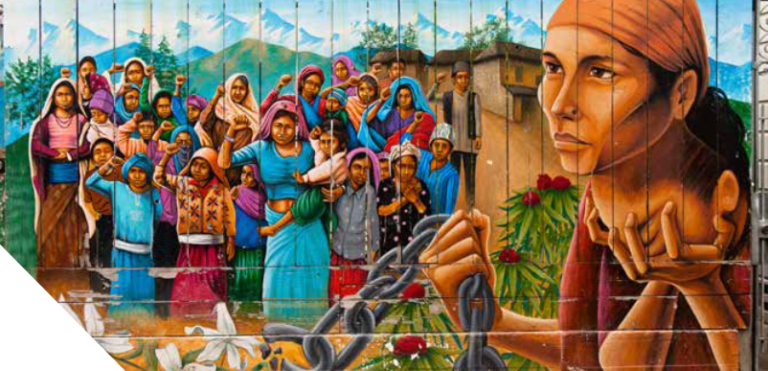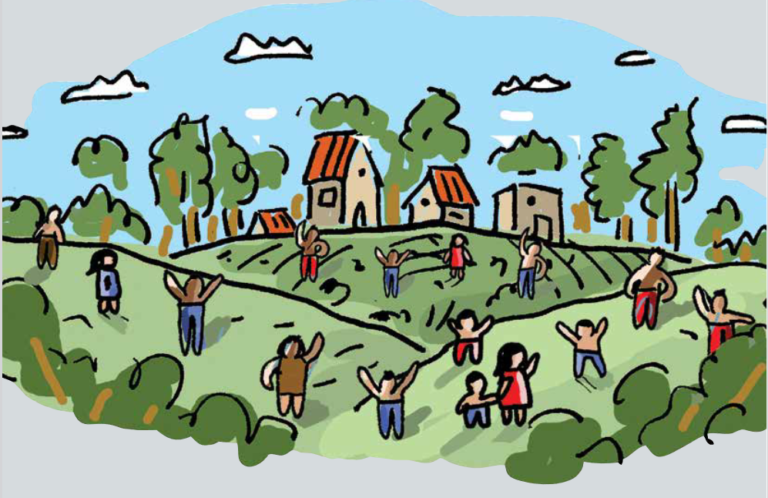Peasants’ rights briefings
FIAN International releases a series of briefings exploring how the United Nations Declaration on the Rights of Peasants and Other People Working in Rural Areas (UNDROP) is to impact the rural world
These briefings take a close look at the rights, principles and states obligations adopted in UNDROP by the United Nations General Assembly on 17 December 2018.
1. Rural Women’s Rights
How are the rights of women rural in rural areas now strengthened by UNDROP?
2. The Rights to Biodiversity and Seeds
Why are biodiversity and seeds essential for peasants and other people in rural areas, and how should they be internationally protected?
3. Rights to Water and Sanitation
Water plays a key role in the lives of peasants and rural population, how are these rights defined and how should access be fulfilled?
4. Right to Adequate Food and Nutrition, and to Food Sovereignty
How are right to food and the right to food sovereignty recognized in UNDROP?
5. Environmental and Climate Justice
Environmental destruction and climate change are threatening the human rights of peasants and other people working in rural areas around the world, how does UNDROP contribute to achieving environmental and climate justice?
6. Agroecology
Agroecology promotes a set of agricultural practices that are environmentally sustainable and socially just. How is UNDROP helping foster agroecology?
7. Filling the gaps in protecting the human rights of a diverse rural world
People living in the countryside are diverse. While their identities are dynamic and fluid, they face similar systemic challenges for the realization of their human rights. How can a mutually supportive interpretation of the UN Declaration on the Rights of Indigenous Peoples (UNDRIP) and UNDROP help advance the rights of the rural world?
8. The right to land and other natural resources
Land is a common good. Access, control, management and use of land is essential for rural communities to live a dignified life. How is the human right to land recognized in UNDROP?

